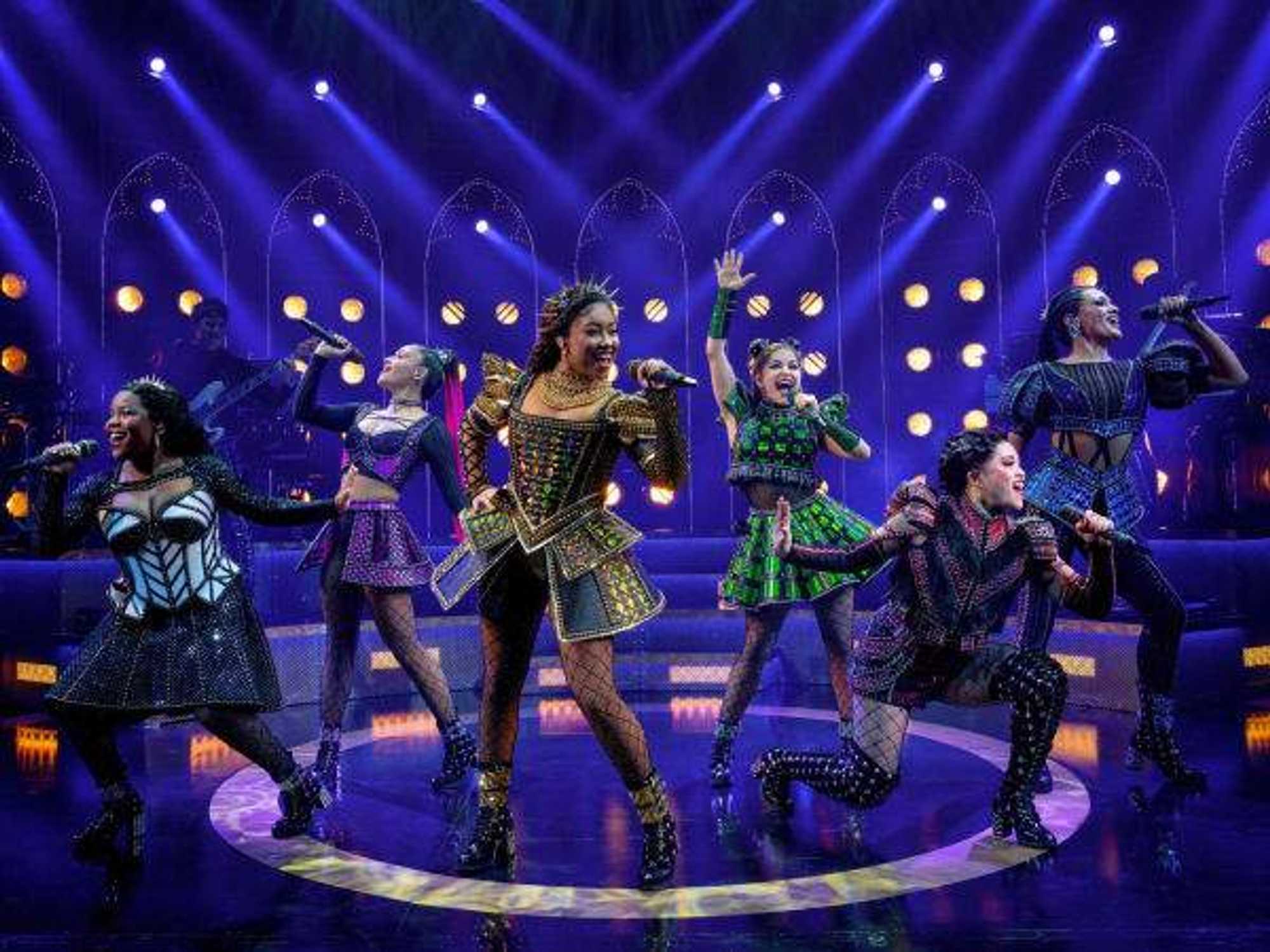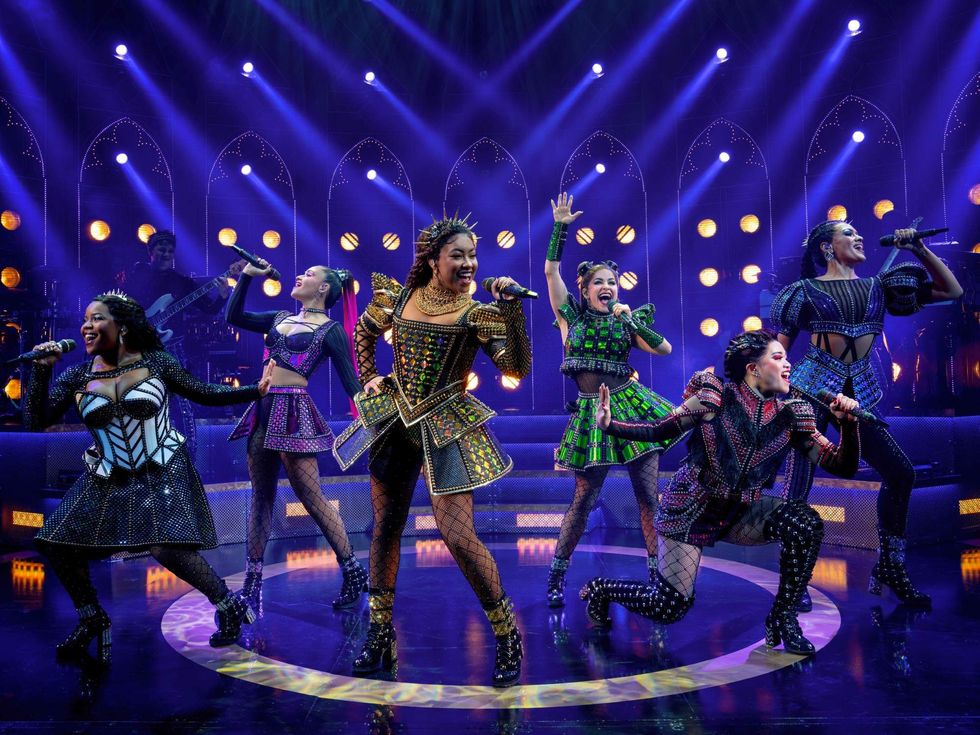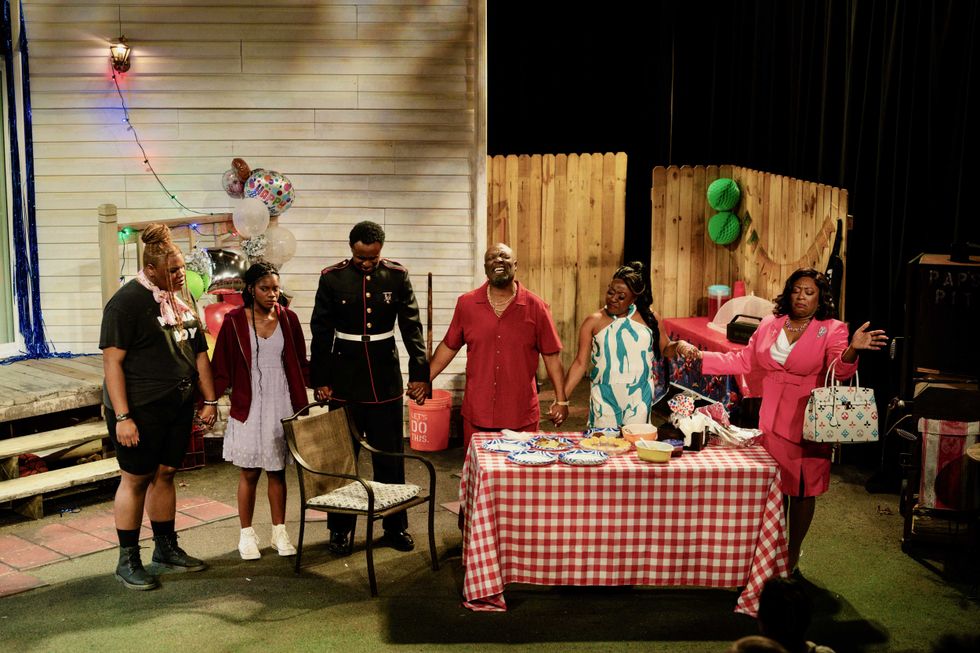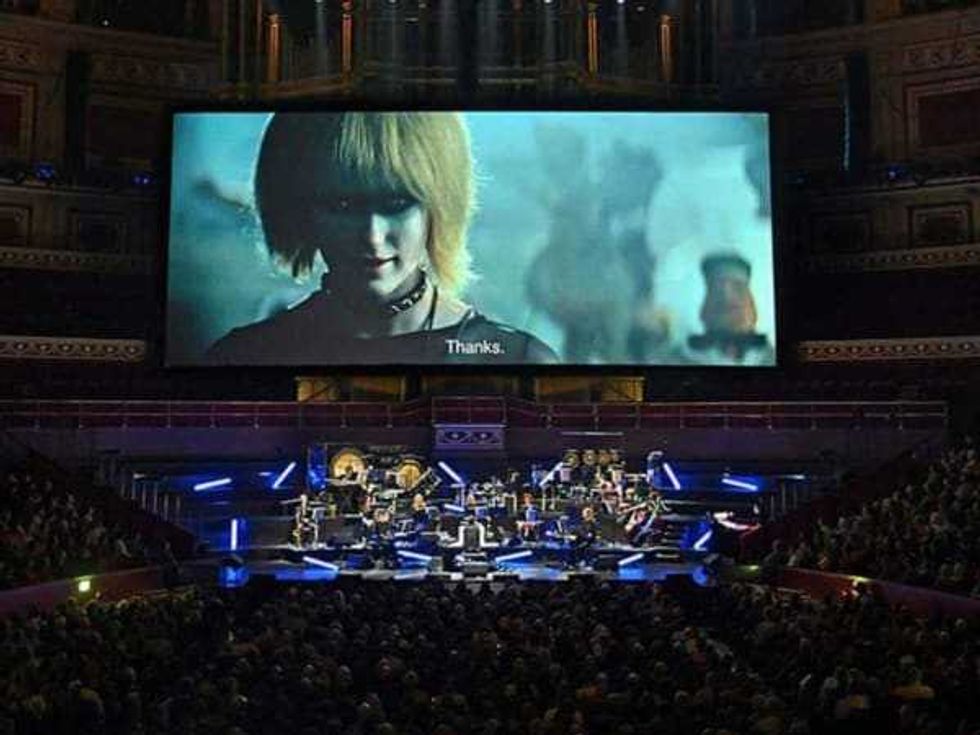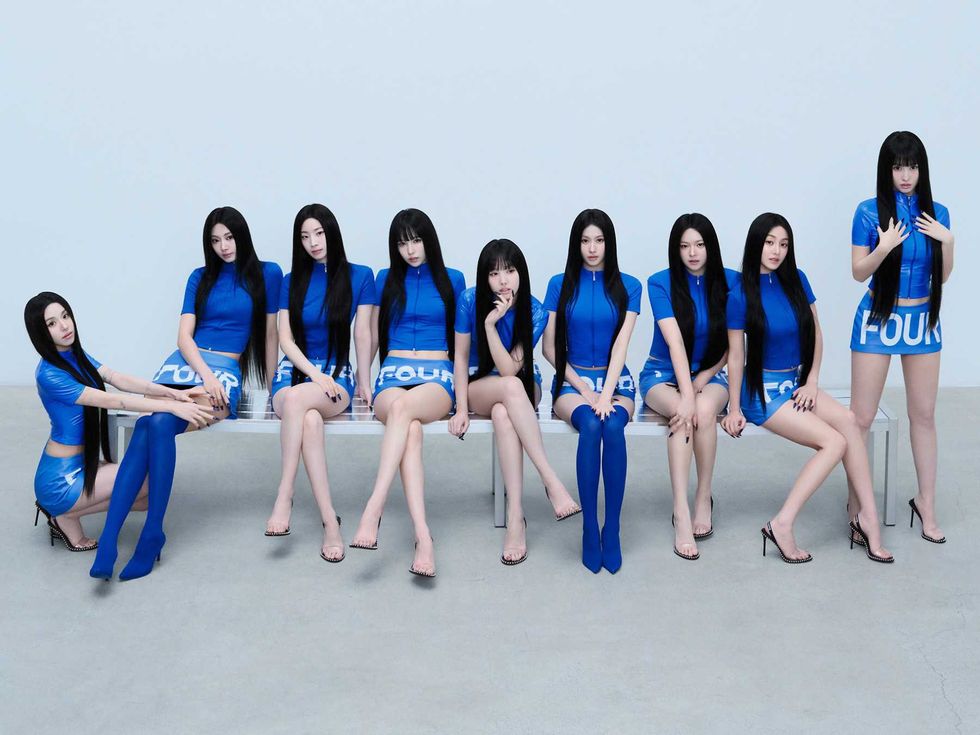With the first winter storm of the season (hopefully) behind us, this weekend across Dallas will bring a bevy of great things to do. Choices include a film (and more) festival, six theater productions (including a Broadway tour), a Latin-themed symphony concert, a well-known comedian, a pub-themed concert, a new exhibition from a renowned artist, a concert featuring a classic movie, a K-pop concert, the final days of a D&D experience, and an opera recital.
Below are the best ways to spend your free time this weekend. If you want more options, check out the calendar for an even longer list of the city's best events.
Thursday, January 29
Denton Black Film Festival
The Denton Black Film Festival was created in order to address under-representation in film and media by giving Black stories an audience and Black creatives a platform. Featuring over 95 films, live performances, music, art, tech showcases, and more, highlights include opening night film, Quakertown USA, the documentary Bastards of Soul, the documentary A Portrait of a Postman, and a closing night concert by Kandace Springs. The festival takes place through Sunday at multiple venues in Denton.
Broadway Dallas presents Six
Divorced, beheaded, died, divorced, beheaded, survived. From Tudor queens to pop icons, the six wives of Henry VIII take the microphone to remix 50 years of historical heartbreak into a euphoric celebration of 21st-century girl power. The national tour of the Broadway musical will be at the Music Hall at Fair Park through Sunday.
Friday, January 30
Theatre Three presents Deer
Empty-nesters Ken and Cynthia hit a deer while driving to their weekend house in the Poconos. As their lifeless, bloody new pet takes over their lives, Ken and Cynthia will either rekindle their love or kill each other. Deer is a grisly, pitch-black comedy about normal people who snap. The production runs through February 22 in the Theatre Too space at Theatre Three. (NOTE: A scheduled preview performance on January 29 was canceled due to continuing hazardous road conditions.)
The Firehouse Theatre presents Ring of Fire
From Johnny Cash’s iconic songbook comes a unique musical journey through love and faith, struggle and success, rowdiness and redemption, and the healing power of home and family. It is told through over two dozen of his greatest hits, including “I Walk The Line,” “A Boy Named Sue,” “Folsom Prison Blues,” and the title song. The production runs through February 15. (NOTE: A scheduled preview performance on January 29 was canceled due to continuing hazardous road conditions.)
Garland Civic Theatre presents Curtains
Curtains is a musical whodunnit set in 1959, where the opening night of a new Broadway musical is interrupted by the murder of its leading lady. Detective Frank Cioffi, a fan of musical theatre, must solve the mystery while the show tries to continue. The plot unfolds with a blend of mystery, comedy, and classic musical theatre elements. The production runs through February 15 at Granville Arts Center.
Dallas Theater Center presents Fat Ham
In this regional premiere of the Pulitzer Prize-winning, hit Broadway comedy, Juicy’s got a lot on his plate - his mom just married his uncle. All he wants is to make his own way as a queer Black man in a Southern family. But here’s the rub - his father’s ghost just turned up at a backyard barbecue demanding vengeance. In this delicious and sizzling reinvention of Shakespeare’s masterpiece, a young man vows to break the cycles of violence in service of his own liberation and joy. The production runs through February 8 at Kalita Humphreys Theater.
Dallas Symphony Orchestra presents "La Vida Loca"
"La Vida Loca" celebrates artists like Enrique Iglesias, Gloria Estefan, Santana, Ricky Martin, and more. Conductor Enrico Lopez-Yañez, vocalists Ender Thomas and Jackie Mendez, and trumpeter José Sibaja and percussionist Luisito Quintero will join the Dallas Symphony Orchestra for a program featuring all-new symphonic arrangements by Lopez-Yañez and Sibaja. There will be three performances through Sunday at Meyerson Symphony Center.
Improv Addison presents Bill Bellamy
Using his experiences growing up in Newark, Bill Bellamy started doing stand-up while he was a student at Rutgers University. His long comedy career has led to multiple roles in both television and movies, including Love Jones, How to Be a Player, Any Given Sunday, and Insecure. He also hosts the podcast Top Billin’ With Bill Bellamy. He'll perform five times through Sunday at Improv Addison.
Majestic Theatre presents The Choir of Man
The Choir of Man offers up 80 minutes of pop, classic rock, folk, Broadway and pub tunes, featuring a cast of nine skilled guys who combine harmonies, singalongs, tap dance, and meditations on the power of community in an homage to that gathering place we all love so much: your local pub. The concert takes place at Majestic Theatre.
Stomping Ground Comedy presents The Last Five Years
An emotionally powerful and intimate musical sprinkled with humor, The Last Five Years tells the bittersweet tale of a relationship between two young artists. Cathy, a struggling actor, starts her tale at the end of the marriage, working backwards through the timeline. Jamie, a literary prodigy, begins his at the onset of the relationship. There will be four performances through February 7 at Stomping Ground Comedy Theater.
Saturday, January 31
Nasher Sculpture Center presents "Roy Lichtenstein in the Studio" opening day
The Dallas Museum of Art and the Nasher Sculpture Center will co-present works from the joint acquisition of over 50 artworks gifted by the Roy Lichtenstein Foundation in 2024. At the Nasher, works relating to three sculptures from the Raymond and Patsy Nasher Collection - Head with Blue Shadow, Peace through Chemistry, and Double Glass - will be accompanied by a selection from the Foundation's gift of more than two dozen drawings and maquettes associated with Lichtenstein’s Brushstroke sculptures. The exhibition will remain on display through August 16.
AT&T Performing Arts Center presents Blade Runner Live
At this special event, Ridley Scott’s stylish noir classic, Blade Runner (2007 Final Cut) will screen while Vangelis’ synthesizer-led cult score is performed live by The Avex Ensemble. In the stylish noir thriller, detective Rick Deckard (Harrison Ford) must continue as Replicant Hunter following the escape of four Replicants from colonies who’ve returned to earth. His mission, however, is complicated when he falls for Rachel (Sean Young); a Replicant based at the Tyrell Corporation. The screening takes place at Majestic Theatre.
Twice in concert
The nine-member K-pop girl group Twice has been going strong for 10 years after being formed on the Korean reality show Sixteen. Like many other K-pop groups, they have recorded a number of albums in both Korean and Japanese, with their most recent releases being Ten: The Story Goes On (Korean) and Enemy (Japanese), both coming out in 2025. They'll perform on both Saturday and Sunday at American Airlines Center.
Sunday, February 1
Dungeons & Dragons: The Immersive Quest closing day
After four-plus months, the stay of Dungeons & Dragons: The Immersive Quest in Plano will come to a close. Visitors can embark on a heroic journey, face thrilling challenges, and forge a path through a quest of magic, mystery, and legendary encounters. Each guest can choose to become a rogue, druid, fighter, or wizard, and the choice will shape their journey. Everyone will face legendary D&D creatures like the Roper, Owlbear, and Gelatinous Cube, and test their skills in epic battles. The event is located inside a former Buy Buy Baby location near the intersection of Parker Road and Central Expressway.
The Dallas Opera presents Titus Family Recital: Erin Morle
Soprano Erin Morley is a sought-after artist on the world’s major opera stages, including La Scala, Vienna Staatsoper, Glyndebourne, and the Metropolitan Opera, where she has sung more than 100 performances. Morley continues to thrill audiences around the globe both in recital and a host of major coloratura roles, including Gilda in Rigoletto, Olympia in The Tales of Hoffmann, and the title role in Lucia di Lammermoor. She released her debut recital album, Rose in Bloom, in 2024. She'll perform at Winspear Opera House.

